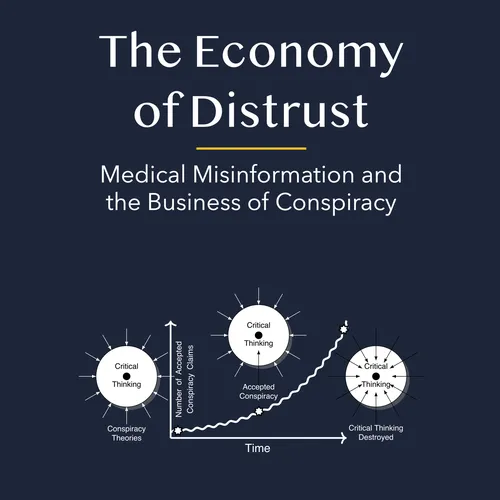Unmasking Confounding Variables
- Author
- Milan Toma
- Published
- Sat 06 Sep 2025
- Episode Link
- https://podcasters.spotify.com/pod/show/economy-distrust/episodes/Unmasking-Confounding-Variables-e37rv6n
This episode explores the critical role of confounding variables in health research, which are external factors that distort or mask true associations between an exposure and an outcome, often leading to misleading narratives. It highlights how socioeconomic status acts as a significant confounder, influencing apparent health benefits from things like wine consumption or the detrimental effects of processed foods. The episode also discusses reverse causality and survivorship bias, explaining how these mechanisms can create illusions of protective effects, as seen in the examples of smoking and Parkinson's disease or historical diets and heart disease. Finally, it uses the MMR vaccine and autism controversy to illustrate how ignoring confounding variables can be exploited to generate public distrust and misinformation, emphasizing the need for better science communication and education on this topic.
